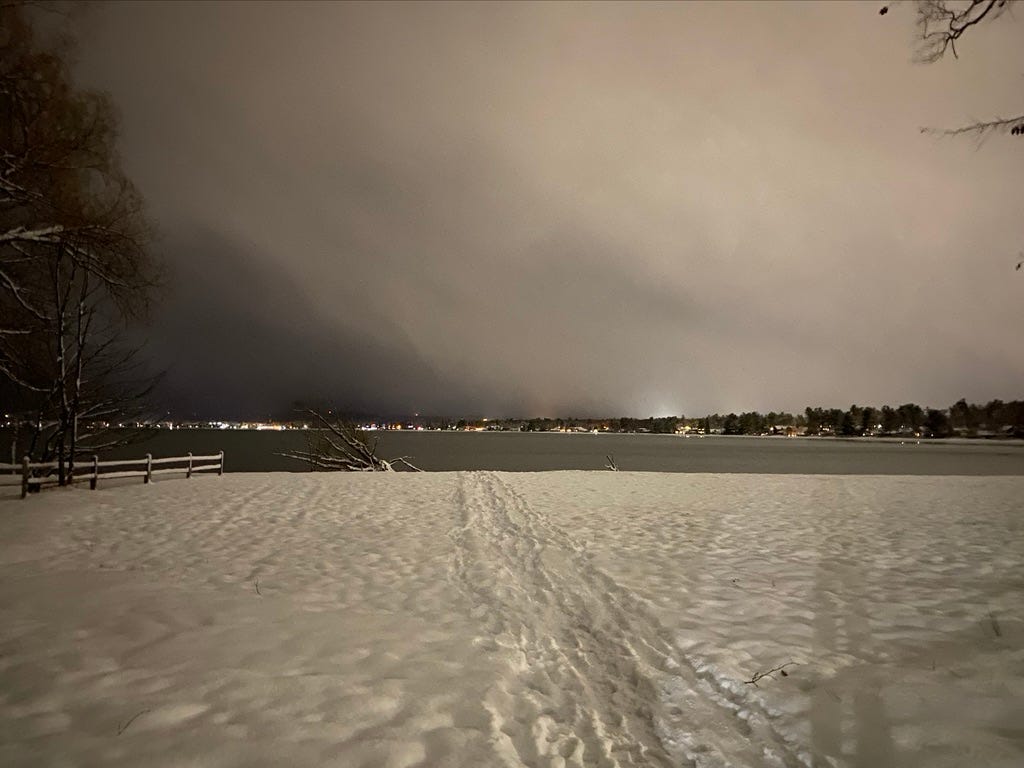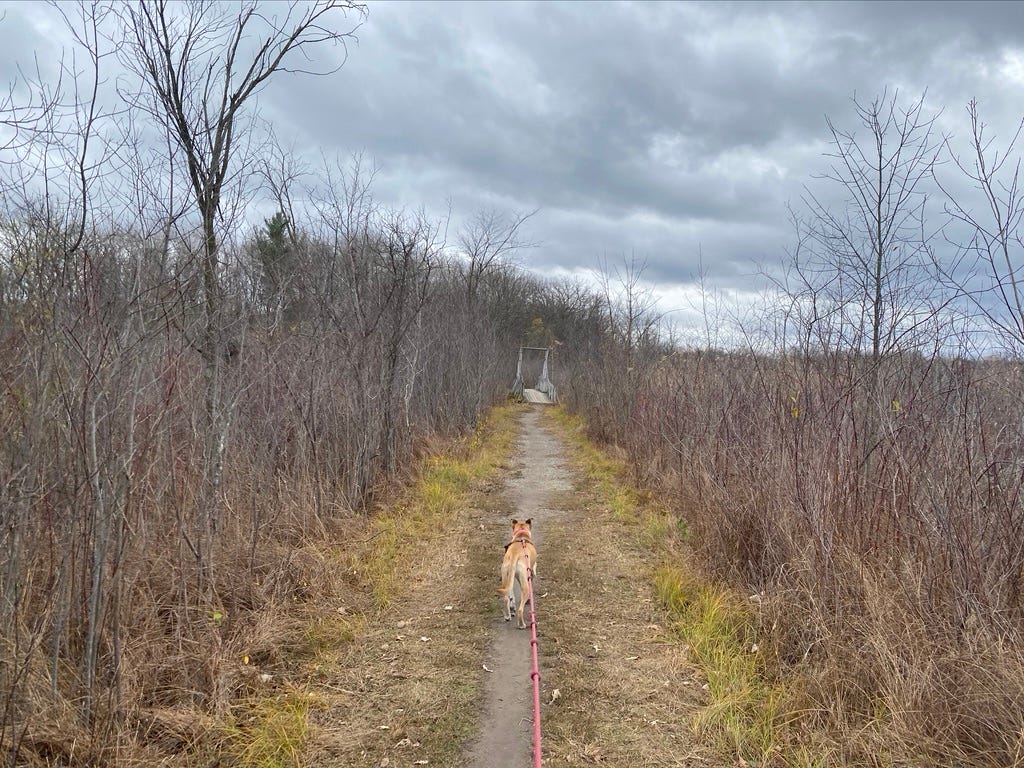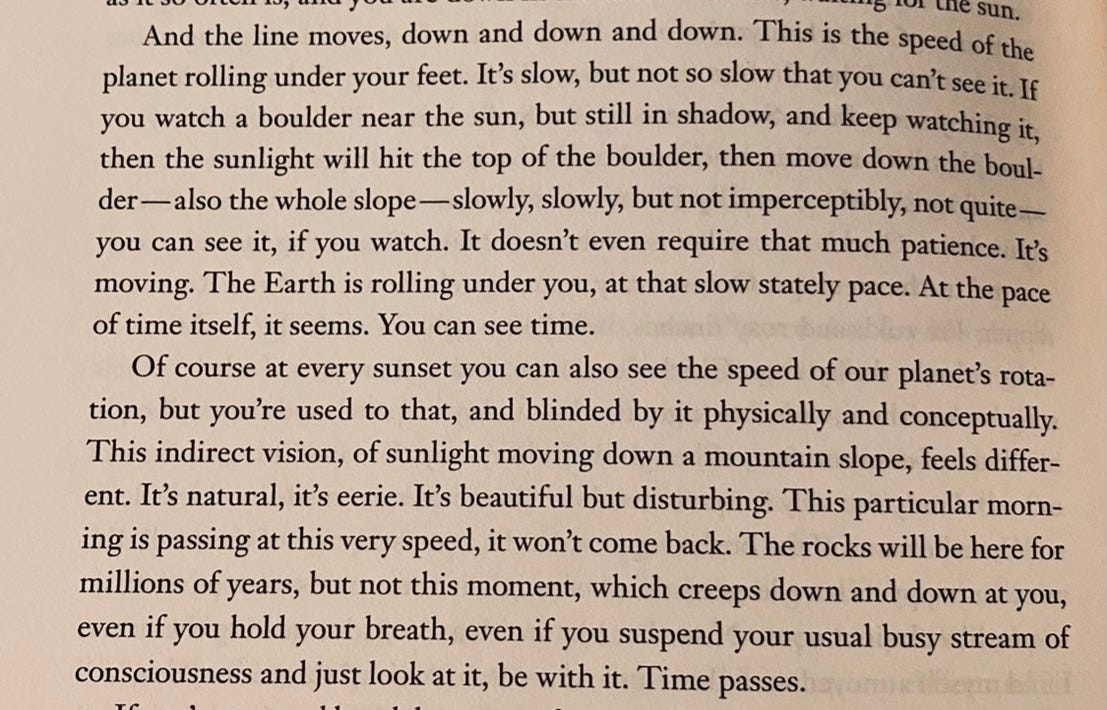The Only Mysteries Are The Great Mysteries Of All Time
On holidays and the peculiar compressions of time that they make apparent
Prior to this week, I hadn’t been home for Thanksgiving since 2011, the fall of my senior year of college.
That weekend marked the last time I played in the “Reunion Bowl,” the back-from-college football game that my brother and his friends had been organizing each year since they left home in 2006. Relatedly, it also marked the most serious concussion of my life. (We played tackle; it was almost always snowing or raining or both, and none of us had played enough organized football to know how to hit or get hit safely.) I laid on the couch afterward and shivered my way through my beloved Ohio State Buckeyes losing a rare game to the hated Michigan Wolverines. Misery upon misery, during what was supposed to be one of my favorite weekends of the year.
Things are different now.1 Scheduling holiday meals and quality time with my family has been complicated by marriages, children, dogs, and jobs. The last time I was here for this weekend that scheduling really only had to contend with Mulligan’s, our local watering hole. But that seems to me to be the point of holidays: not just the gathering, but the signpost, the ritual that necessitates the gathering. After eleven years of missing this event, this event still exists for me to return to. I’m fortunate enough that I despite this long absence I can still celebrate with all the same people as last time, plus a few more for good measure.2
There is nothing like a holiday to reveal the strange nature of time. The pace of preparation is frenetic and half-crazed; traveling by car or plane is more agitating than usual given the increased density of other people trying to do the same thing. You run around like crazy trying to get everything in place for an event that is mostly just sitting around. And if you’ve returned home and are anything like me, you use whatever spare quiet moments you have to become an archeologist of your own past, digging through drawers and looking through old photos and mostly smiling wistfully about who you used to be. All you aspired to and all you had yet to realize.
In these moments time stretches: is the turkey ever going to be ready, is uncle so-and-so ever going to get here so we can actually eat. And it compresses: where have the years between this photo and the present gone, why did I ever put this poster on my bedroom wall.
I quite like the way Kim Stanley Robinson describes this odd sensation of experiencing the passage of time in the micro and the macro simultaneously, in The High Sierra: A Love Story:
Time passes. Somehow we’re almost to the end of November, a month that I find I rarely give much thought to. If I experience November at all it’s usually as a hunkering down, a month to pass quietly as the world grows cold. I usually just want to fast-forward to Thanksgiving in whatever form that day takes. Of course wishing for time to pass any faster than it naturally does is the most existentially foolish thing one can do, but I do it anyway if I’m not careful.
That’s why I’m grateful for Hal Borland’s reflections on the month of November, which my mom has been sending me intermittently, perhaps sensing this tendency of mine to draw away from the world at this point in the year:
This is no complex world. It is a world of simple things, now brought to rest. Who can make complexity of wood smoke, so sharp on the night air? Or the barking of a dog announcing footsteps and leaf-rustle on the road? And what is so simple as a tall maple, all its leaves shed, silhouetted against the sky?
To walk on such a night is to know that the only mysteries are the great mysteries of all time - the stars, the heavens, the restless wind-tides, the spinning Earth, and man himself. Daylight and suntime are the time to explore these matters; nightime and darkness are the time to accept them and build dreams and poems upon them. Night, when the cool of the year has come, is the time to walk with them and know intimately the bold simplicities.
I hope wherever you are and whoever you’re with this Thanksgiving, you get some space and time to reflect on “the bold simplicities,” as Borland calls them. And I hope you see reflected in the faces of the people at whatever table you’re gathered at a version of yourself that the child you once were would be happy to have become.
Thanks, as always, for reading. I’ll talk to you next time.
-Chuck
PS - If you liked what you read here, why not subscribe and get this newsletter delivered to your inbox each week? It’s free and always will be, although there is a voluntary paid subscription option if you’d like to support Tabs Open that way.
PPS - If you want to read or listen to some previous Thanksgiving reflections from this newsletter, you can do so at the link below.
Including, hopefully, the loss to Michigan.
In 2011 my older brother had not yet been introduced to my sister-in-law, with whom he now has two beautiful children. My younger brother had just finished high school, not knowing that all this time later he would be coming to Thanksgiving dinner with the sister of one of the classmates he had graduated with. My dad’s longtime partner was still simply a woman he knew from work. The mind reels.






The older I get and the more haunting John Mayer's "Don't Stop this Train" becomes because of the same feeling of the passage of time concept you were fleshing out.
Thankful for these posts each week. Happy Thanksgiving and I hope you enjoy your time at home.